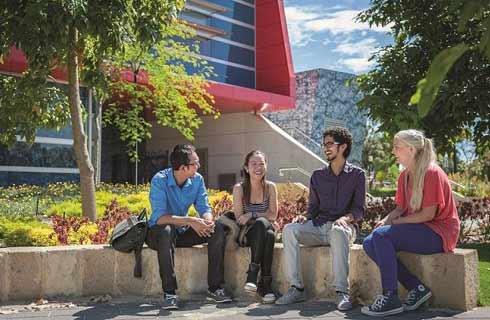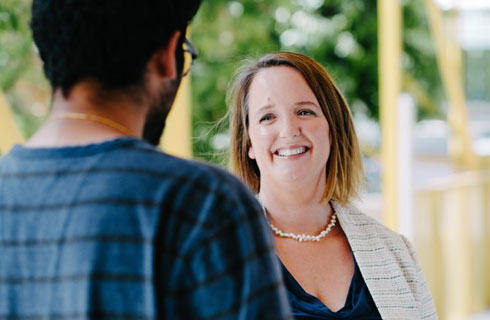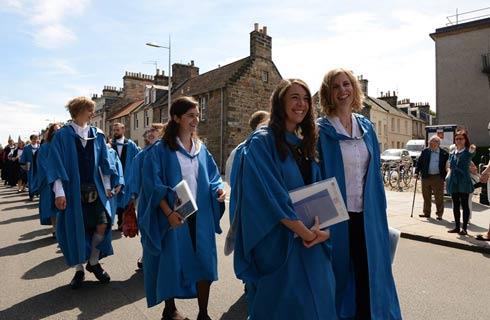理学士(荣誉)生物学
Biology

学历文凭
Bachelor Degree with Honours

专业院系
School of Natural Sciences

开学时间

课程时长

课程学费

国际学生入学条件
IDP—雅思考试联合主办方

雅思考试总分
- 雅思总分:
- 托福网考总分:
- 托福笔试总分:
- 其他语言考试:
CRICOS代码: C100
申请截止日期: 请与IDP联系 以获取详细信息。
课程简介
Biology is the science of life itself, exploring the structure, function, growth, origin, evolution, and distribution of living organisms. The BSc (Hons) Biology degree at Lincoln covers a diverse range of subject areas while allowing students to develop their own specialisms. The course includes opportunities for overseas field work to study living organisms in their natural environments.Students join a vibrant academic community in the Department of Life Sciences and can benefit from research-focused teaching by academics. There is an emphasis on practical work, with students conducting their own projects alongside academics and practising researchers.Students can participate in a residential field trip in the UK, enabling them to study animals and plants in the wild. There is also an overseas field trip available in the final year as part of the optional 'Overseas Field Course' module.Throughout this course, students are able to study the many facets of biology, develop an understanding of research methods, and apply their learning in the laboratory and in the field.The first year of this degree introduces students to the different elements of biology, including evolution, ecology, metabolism, microbial biochemistry, and genetics. In the second year, students can study a range of topics including molecular biology, animal health and disease, animal behaviour, clinical biochemistry and diagnostics, immunology, human ageing and disease, and conservation biology, alongside training in data handling and analysis.In the third year, students can select from specialist areas including veterinary parasitology, applied biochemistry, cancer epidemiology and pathology, 21st century medicine, blood sciences, plant-animal interactions, soil biology, global change biology, animal cognition and welfare, palaeobiology and behavioural ecology, in addition to undertaking an individual research project to develop independent investigation skills.Teaching at Lincoln places a strong emphasis on students engaging actively with their studies from the outset. Students are encouraged to think of themselves as researchers and producers who can make a contribution to their field of study. Teaching and learning methods include lectures and practical classes, which cover the core subject matter and technical skills, supported by tutorials and seminars which allow students to develop, analyse, and present their own findings. Practical classes in the laboratory and field allow students to practise project management and data gathering, handling, and interpretation skills.Students on this programme learn from academic staff who are often engaged in world-leading or internationally excellent research or professional practice. Contact time can be in workshops, practical sessions, seminars or lectures and may vary from module to module and from academic year to year. Tutorial sessions and project supervision can take the form of one-to-one engagement or small group sessions. There is also opportunity to take part in external visits and fieldwork.
相关申请
 预科
预科 奖学金
奖学金 实习机会
实习机会 在校学习
在校学习 跨境学习
跨境学习 校园授课-线上开始
校园授课-线上开始 在线/远程学习
在线/远程学习
开学时间&学费
学费信息仅供参考,请与IDP联系以获取详细信息
| 开学时间 | 时长 | 学费 | 地点 |
|---|
学校排名

世界排名601
数据源:
泰晤士高等教育世界大学排名
关于林肯大学

自女王陛下首次揭幕以来,已有超过10万名来自135个国家/地区的多元文化背景的学生选择在林肯大学学习。这些学生是林肯大学一切工作的核心,林肯大学真正关注的是卓越,这一点在许多英国和国际大学排行榜和调查中得到了认可。在泰晤士报高等教育(THE)2021年青年大学排名中,林肯大学被列入世界前150名。林肯位于英格兰东中部地区,对学生来说是一个迷人的地方,其历史可以追溯到公元前300年。这里有欧洲最好的大教堂之一,也有各种商店和酒吧以及屡获殊荣的Brayford Pool校区。林肯有很多东西可以探索,它是林肯城堡的所在地,是很多重要历史人物的出生地,包括艾萨克-牛顿爵士和玛格丽特-撒切尔。林肯大学自2001年以来投资超过3亿英镑,创造了一个以学生为中心的现代化环境,提供了令人难忘的学生体验。该校91%的新毕业生在完成课程后15个月内就业或继续深造,超过70%的人从事高技能工作(2017/18年毕业生成果研究)。由于该机构与业界的紧密联系,很多林肯大学的毕业生进入跨国公司工作,包括劳斯莱斯、BBC、汇丰银行和西门子。林肯大学因其为解决今日社会面临的最严重问题做出的研究发自内心感到自豪。林肯大学的多半研究被最新卓越研究框架评为世界领先或具有国际卓越性。
本校相关课程

理学硕士运动科学
学历文凭
Masters Degree (Taught)
开学日期
课程费用总额


社会工作硕士
学历文凭
Masters Degree (Taught)
开学日期
课程费用总额


硕士/博士学位社会科学
学历文凭
Ph.D.
开学日期
课程费用总额


硕士/博士社会政策
学历文凭
Ph.D.
开学日期
课程费用总额


DClinPsy Psychology
学历文凭
Ph.D.
开学日期
课程费用总额


MPhil / PhD政治
学历文凭
Ph.D.
开学日期
课程费用总额

其他相关课程

生物医学学士
 皇家墨尔本理工大学
皇家墨尔本理工大学学历文凭
Bachelor Degree
开学日期
课程费用总额


哲学硕士-生物医学和生物化学
 澳大利亚国立大学
澳大利亚国立大学学历文凭
Masters Degree (Research)
开学日期
课程费用总额


生物医学学士
 詹姆斯·库克大学
詹姆斯·库克大学泰晤士高等教育世界大学排名:361
学历文凭
Bachelor Degree
开学日期
课程费用总额


理学学士(海洋生物学)
 弗林德斯大学
弗林德斯大学泰晤士高等教育世界大学排名:307
学历文凭
Bachelor Degree
开学日期
课程费用总额


理学学士-海洋生物学(荣誉学位)
 弗林德斯大学
弗林德斯大学泰晤士高等教育世界大学排名:307
学历文凭
Bachelor Degree with Honours
开学日期
课程费用总额


城市与环境规划学士/海洋生物学理学学士
 格里菲斯大学
格里菲斯大学泰晤士高等教育世界大学排名:258
学历文凭
Dual Degree
开学日期
13 July 2026
课程费用总额
AUD 167,500










 英国
英国